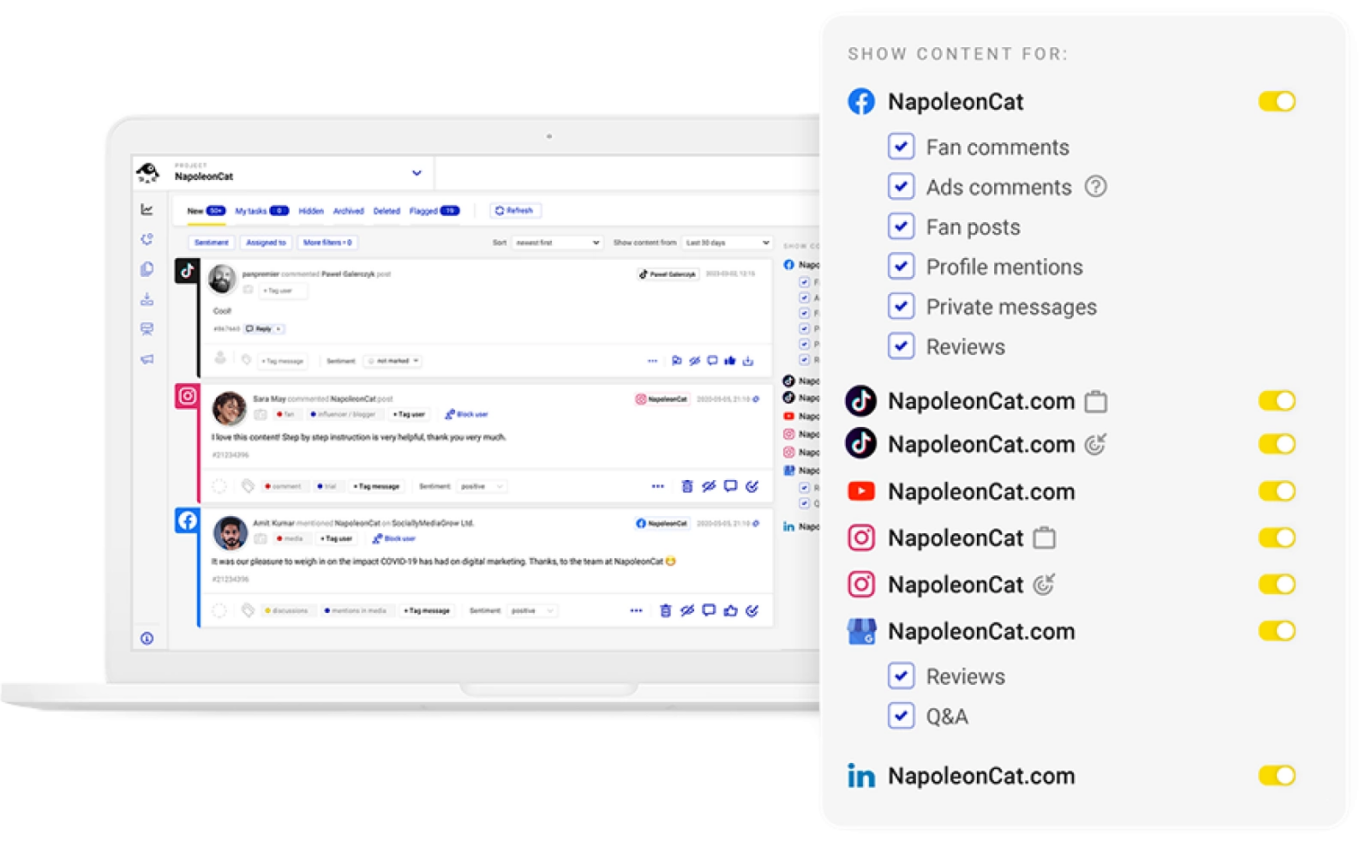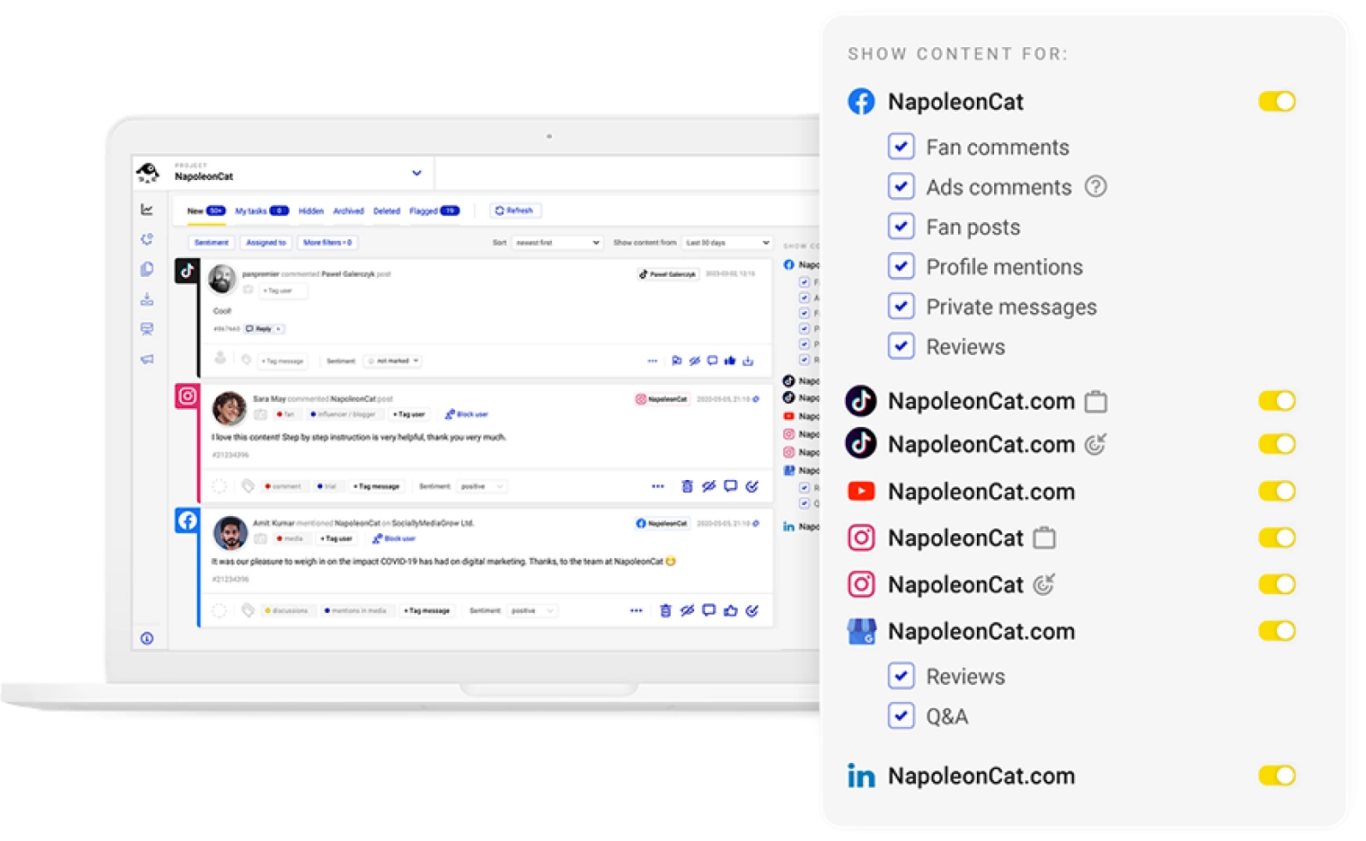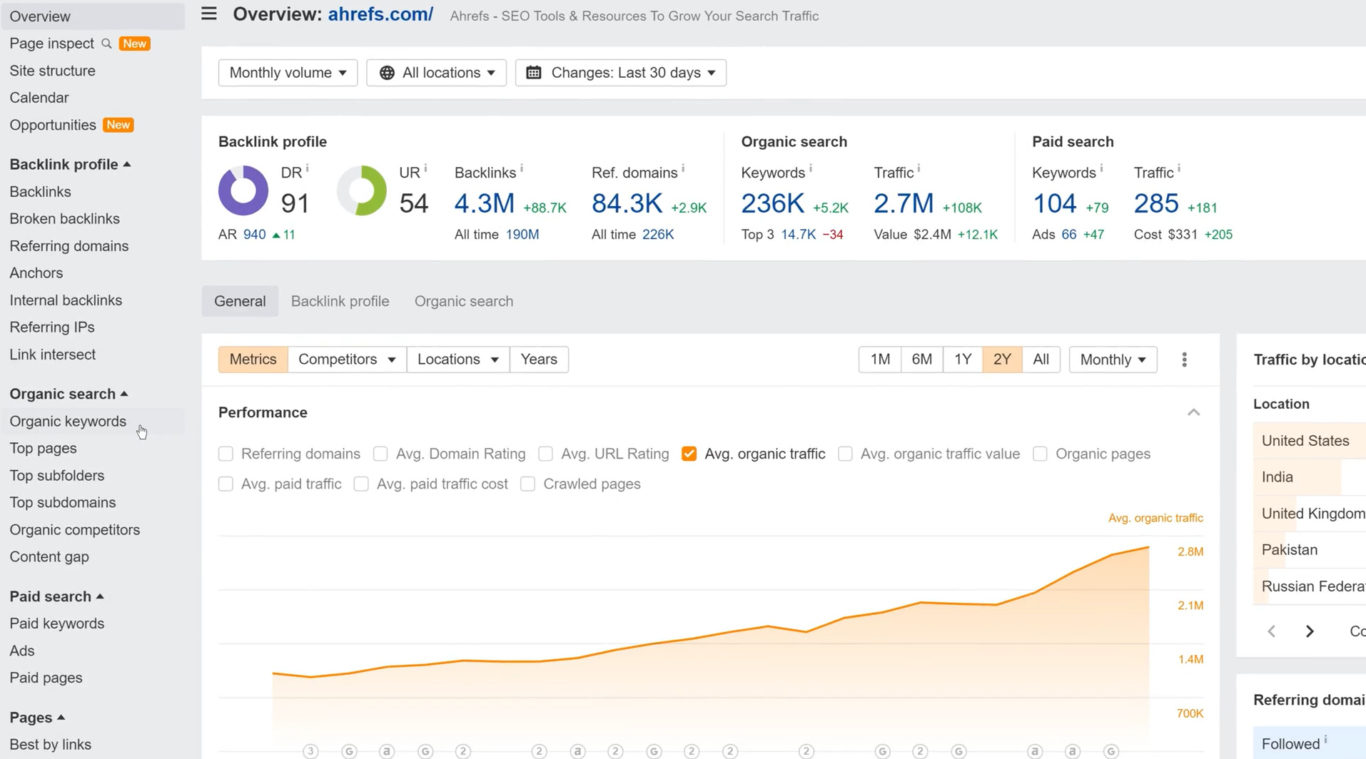8 Essential Examples of Marketing Agency Software
Many marketing agencies run on thin margins and tight deadlines, meaning they rely heavily on tools that automate work and streamline delivery. But overspending on these tools is all too common, too. You need to make sure every tool you add to your stack is absolutely essential.
Here’s our guide to doing that.
What kind of software do marketing agencies need?
Like any other business, marketing agencies need dedicated software to keep things running smoothly. Because profitability and billable hours are two of the most important KPIs (or key performance indicators) for agencies, any tool that can help your team save time creates massive ROI. Here are some examples of software that marketing agencies use:
- Project management tools: A robust project management tool is essential for managing multiple client projects at once without anything slipping through the cracks.
- Online whiteboards: If you’re finding yourself working with remote teams, having a digital whiteboard can streamline brainstorming, help organize projects, and map out anything you can think of.
- Customer relationship management (CRM) tools: For agencies who have a large customer base (or rotate through customers frequently) a CRM helps track contact information and interactions for customers and prospects.
- Content management systems: When you’re creating content for multiple clients, these tools give you a way to keep it all in one place, schedule it, and even distribute it across multiple platforms.
- Workflow management software: Agencies rely on several workflows. Any inefficiencies in these workflows can create issues later on, like projects going over budget or deliverables being delayed.
- Reporting tools: Whether you need to centralize data from multiple platforms, have a better way of visualizing it all, or create dynamic marketing dashboards, reporting tools are essential for marketing agencies.
Benefits of using marketing agency software
- Centralized data: Siloing and missing data slows down your workflow, requiring extra steps to fix. Software that keeps your team on the same page and provides them with all the same data to work with keeps productivity flowing smoothly.
- Fewer missed deadlines: A unified digital space means a single source of truth for you and your team, which keeps work from slipping through the cracks.
- Lower budgets: Workflow and overhead efficiency means your budget can work for you, not against you.
- Better profitability: Marketing agency software can automate repetitive tasks and streamline business-critical operations. That allows you to get more done for less.
8 Best examples of marketing agency software
Unito

Unito lets you integrate your tools to get more value out of them. By synchronizing your information from one tool to the other, either in one-way or two-way flows depending on your needs, Unito lets you branch out into other tools without losing touch with your essential data.
Once your tools are integrated, Unito’s powerful automation lets you break data out of silos, allowing you and your team to continue using the software you’re already working with while simultaneously staying in sync and up-to-date with a single source of truth.
For teams that love the tools they have already, but need to break out of separate workspaces, Unito is the solution for you.
What is it best for?
Integrating existing tools into your own unified platform with a single source of truth and two-way sync. Get started with your free trial here!
Pricing
You can get detailed pricing information for Unito here.
Google Analytics

Rarely is an industry standard as accessible and scalable as Google Analytics. If you are already using the Google suite of software, this is easily the best choice for ad management and analytics. Though it can have a significant learning curve, that initial investment in learning the software is absolutely worthwhile. Once you’re up to speed though, Google Analytics sets the bar for in-depth analysis and reporting.
What is it best for?
Tracking trends and advertising metrics, managing campaigns, and reporting on website performance.
Pricing
Free, scaling to paid Enterprise level plans on Google Analytics 360.
ClickUp

The project management software market is full of excellent offerings at every level and for any industry, but ClickUp stands above the rest. Industry-agnostic, deeply featured, and flexible, you’ll be hard-pressed to find a use case that ClickUp can’t handle.
Its only drawback is that, just like Google Analytics, it suffers from its own capability. The amount of features on offer here means there will be a short learning curve before you really take advantage of the tools it provides. Once onboarded, though, you won’t be wanting for features. Seven layers of task nesting lets you cover all the details of a project, and then some. Custom views, automations, collaborative whiteboards and documents, and new AI-driven features mean there’s a solution for every project or task, all readily available.
What is it best for?
Project management and team collaboration.
Pricing
Free forever entry plan with excellent features, expanded feature sets for $7 or $12 per user, and up to custom pricing for enterprises.
Mailchimp

Mailchimp is a popular example of email campaign management software for good reason. It covers every aspect of email marketing, and its automations allow you to streamline and accelerate campaigns. Comprehensive tracking, reporting, and analytics mean you’re never in the dark regarding campaign performance. Add to that both social media campaign management and new AI tools, and it’s clear why Mailchimp is so ubiquitous.
Curious how you can make Mailchimp fit into your stack? Here’s how you can sync it with Pipedrive using Unito.
What is it best for?
Email campaign management and automation.
Pricing
Free basic plan, monthly subscriptions with scaling features for USD $13, $20, and a Premium plan at $350.
HubSpot

HubSpot offers six “Hubs” each geared for specific areas of a marketing agency: customer relations, marketing, content, commerce, operations, and sales. Each provides a plethora of features for automating and streamlining all sorts of business activities, from emails to support tickets and forms. Each Hub is powerful on its own, but the real power comes from HubSpot’s ability to integrate not only across Hubs, but with your other software as well. With 1500+ integrations available, HubSpot can be the keystone of a powerful system that incorporates numerous essential aspects of your business.
What is it best for?
Campaign management and customer relationship management (CRM).
Pricing
Each Hub is available individually, but HubSpot has a bundle builder that you can use, as well as a list of their free tools. Otherwise, check out the rest of their pricing here for more details.
Act-On

Act-On is a user-friendly marketing automation platform. Unlike a lot of the other entries on this list, which are general-purpose, Act-On is a more focused platform, centering its service around Multichannel Marketing, Analytics, and Leads. Act-On gives you the tools to create and manage your campaigns and then analyze the accumulated data to iterate and improve quickly and efficiently. Automation streamlines all of these processes and pre-built integrations for other popular sales and marketing tools let you expand its capabilities.
What is it best for?
Campaign management and analysis.
Pricing
The professional plan starts at $900 with bespoke pricing for enterprises.
NapoleonCat

NapoleonCat is a complete social media management platform that streamlines your socials and enables collaboration across your social media team. NapoleonCat lets you connect multiple accounts and display them in a unified view, automate moderation, publishing, and replies, as well as analyze post and campaign performance. They are a Meta partner and support their social media platforms, but also integrate with TikTok and LinkedIn, as well as Apple’s App Store and Google Play.
What is it best for?
Social media management.
Pricing
After a two-week free trial, the entry-level plan for three accounts and one user is $27. For more users and accounts, they have a sliding scale across Standard, Pro, and Custom plans.
Ahrefs

Ahrefs is an analytics platform for SEO, and backed with 10 years of data, making them hard to beat in the market. If your agency’s services include SEO, this is one of the best tools for the job. Their tool includes a top-level dashboard, site, content, and keyword explorers, as well as an automated site auditor, and rank tracking. All incredible tools for making sure that when you play the SEO game, your client’s site comes out ahead of the rest.
What is it best for?
SEO optimization
Pricing
Four monthly plans: Lite $99, Standard $199, Advanced $399, and custom pricing for Enterprise.
The Best Software for Marketing Agencies
The best software for marketing agencies is never going to be the same answer. There is no one-size-fits-all solution for everyone. Sometimes, the software you already have is perfectly fine, but it just needs a little extra to be truly great.
Unito lets you keep everything in sync across your stack, using the tools you already know and use daily.

